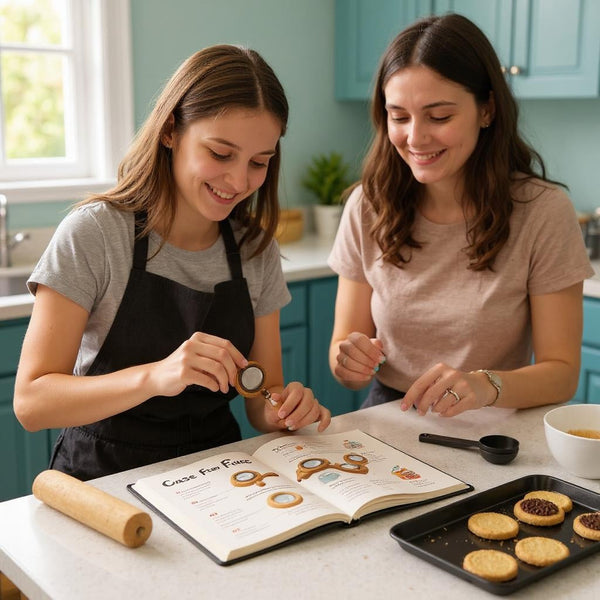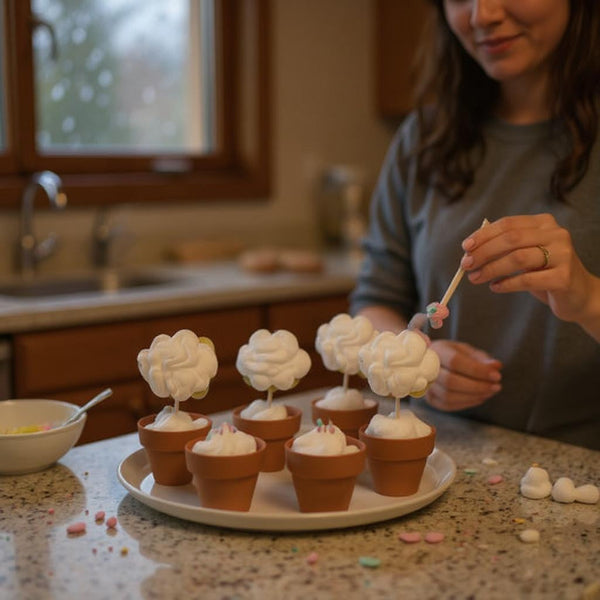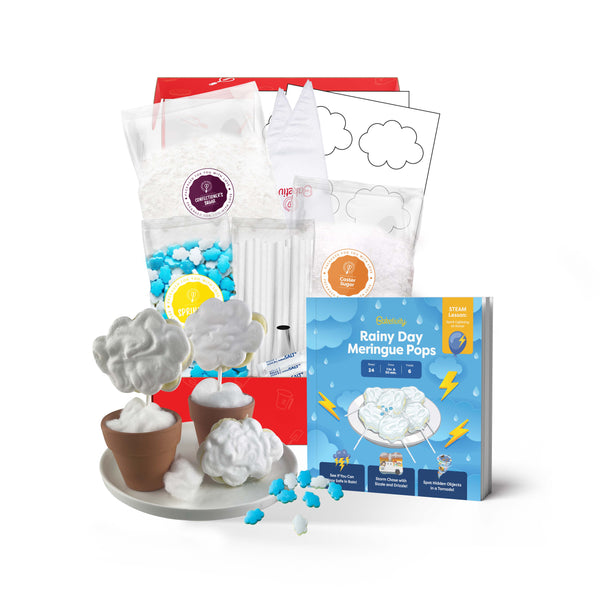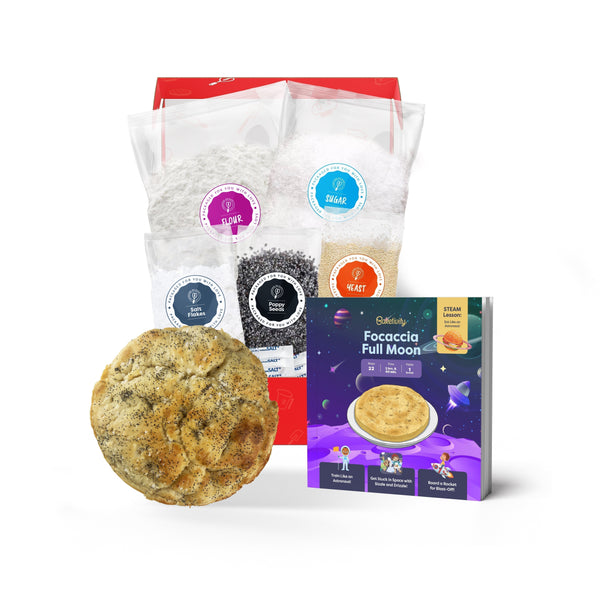Ever watched a kid whip up a gourmet meal that puts our culinary skills to shame? We're talking about the thrilling world of kids' cooking competitions! These pint-sized chefs are turning up the heat in kitchens across the country, proving that age is just a number when it comes to culinary prowess.
From chopping onions without shedding a tear to perfectly searing a steak, these young contestants are mastering techniques that leave us adults in awe. Remember when we thought making toast was a culinary achievement? These kids are creating restaurant-quality dishes that would make Gordon Ramsay proud. What drives these young chefs to compete? Is it the love of food, the thrill of competition, or simply the joy of creating something delicious?Key Takeaways
- Kids' cooking competitions have gained popularity, showcasing young chefs' impressive culinary skills and creativity
- Popular shows like MasterChef Junior and Kids Baking Championship have fueled interest in these contests
- Participating in culinary competitions helps children develop cooking skills, time management, and creativity
- Age categories and specific rules ensure fair competition and safety for young contestants
- These contests can positively impact future careers in the food industry and beyond
- Addressing stress and pressure is crucial to maintain children's enjoyment and passion for cooking
The Rise of Kids Cooking Competitions
Kids' cooking competitions have exploded in popularity, becoming the talk of the town faster than you can say "soufflé." Remember when we thought mac and cheese was the pinnacle of culinary achievement for children? Those days are long gone! These pint-sized chefs are now whipping up dishes that would make Gordon Ramsay do a double-take. From perfectly seared scallops to intricate chocolate desserts, these kids are cooking up a storm. It's like watching mini-Michelin star chefs in action, only they're still learning their multiplication tables! What's driving this surge in kids' culinary contests? Is it the thrill of the heat in the kitchen, or are these young chefs simply hungry for more than just a gold star on their homework? Perhaps it's a mix of both, seasoned with a dash of parental encouragement and a sprinkle of Food Network inspiration. TV shows like MasterChef Junior have played a huge role in this trend. They've turned cooking from a chore into a cool hobby for kids. It's not just about making dinner anymore; it's about creating edible art and impressing judges who've seen it all. Social media has also stirred the pot. Kids are now sharing their culinary creations online, turning their kitchens into mini studios. It's like Instagram, but with more butter and fewer selfies. Who knew hashtags like #KidChef and #JuniorFoodie would become a thing? But it's not all sugar and spice. These competitions can be as nerve-wracking as trying to flip a pancake for the first time. The pressure cooker environment tests not just their cooking skills, but also their ability to handle stress. It's like juggling flaming spatulas while reciting the periodic table – not for the faint of heart! Have you ever wondered what goes on behind the scenes of these competitions? Picture this: a 10-year-old debating whether to use truffle oil or not, while another is frantically googling "how to temper chocolate" on a parent's phone. It's a recipe for both hilarity and heartwarming moments. These competitions are more than just a flash in the pan. They're teaching kids valuable life skills – time management, creativity, and the importance of cleaning up your mess (because let's face it, even adult chefs struggle with that last one).Benefits of Participating in Culinary Contests for Children
Kids' cooking competitions offer numerous advantages for young chefs, fostering their growth and passion for culinary arts. Let's explore the key benefits these contests provide.Skill Development
Culinary contests for children are excellent platforms for honing cooking skills. Young participants learn to chop, sauté, and bake like pros. They master flavor combinations, presentation techniques, and time management in the kitchen. These competitions also teach kids about food safety, nutrition, and menu planning. As they practice for contests, children develop a keen sense of taste and aroma, refining their palates. Have you ever wondered how a 10-year-old can whip up a perfect soufflé? It's all thanks to the skills they've gained through these fun culinary challenges!Popular Kids Cooking Competition Shows
 Kids' cooking competitions have taken the culinary world by storm. These shows showcase young chefs' impressive skills and creativity in the kitchen. Let's explore two of the most popular programs that have captured audiences' hearts.
Kids' cooking competitions have taken the culinary world by storm. These shows showcase young chefs' impressive skills and creativity in the kitchen. Let's explore two of the most popular programs that have captured audiences' hearts.
MasterChef Junior
MasterChef Junior brings the heat to young cooks aged 8 to 13. This show puts kids through their paces with challenging culinary tasks that would make even grown-ups sweat. From whipping up perfect soufflés to crafting intricate pasta dishes, these mini chefs never fail to amaze. Remember when little Tommy created a deconstructed sushi roll that looked more like abstract art? That's the kind of out-of-the-box thinking we see on MasterChef Junior. The judges, including culinary heavyweights, often find themselves slack-jawed at the contestants' creations. But it's not all smooth sailing in this kitchen. Have you ever tried to pipe a delicate design onto a cake while the clock's ticking and cameras are rolling? These kids do it with grace under pressure that'd make a seasoned chef jealous.Kids Baking Championship
Sweet tooths, unite! Kids Baking Championship is a sugar-coated adventure that'll make your mouth water. This show features young bakers tackling everything from towering cakes to finicky French pastries. Picture this: a 10-year-old crafting a croquembouche taller than they are. It's not uncommon on Kids Baking Championship, where the impossible becomes possible through the magic of fondant and determination. The show's challenges often leave us scratching our heads. How many adults do you know who could make a dozen perfectly uniform macarons? These kid bakers do it before lunchtime, often with flavors you'd never imagine. Pickle-flavored macarons, anyone? What's your favorite moment from these shows? Maybe it's the time a young chef turned a kitchen disaster into a triumph, or when a tiny baker created a cake that looked like it belonged in a museum. These shows remind us that age is just a number when it comes to culinary creativity.What to Expect in a Kids Cooking Competition
Kids cooking competitions are exciting events that showcase young culinary talent. Let's explore what participants and spectators can anticipate in these thrilling contests.Age Categories and Rules
Kids cooking competitions typically divide contestants into age groups to ensure fair competition. For example:- Junior chefs (ages 8-11): Simple dishes, basic cooking techniques
- Intermediate chefs (ages 12-14): More complex recipes, advanced skills
- Senior chefs (ages 15-17): Restaurant-quality dishes, creative plating
- Time limits for dish preparation
- Restrictions on pre-prepared ingredients
- Safety guidelines for knife handling and appliance use
- Dress code requirements (chef's hat, apron)
Judging Criteria
Judges evaluate young chefs on several factors:- Taste: Is the dish delicious and well-seasoned?
- Presentation: Does it look appetizing and professionally plated?
- Creativity: How original is the recipe or concept?
- Technique: Are cooking methods executed correctly?
- Food safety: Do contestants follow proper hygiene practices?
Preparing Your Child for a Culinary Contest
Getting your child ready for a cooking competition involves more than just practicing recipes. We'll explore essential skills and techniques to help your young chef succeed in the kitchen and during contests.Essential Kitchen Skills
To excel in culinary contests, kids need a solid foundation of kitchen skills. Start by teaching them proper knife handling and cutting techniques. Practice dicing vegetables, mincing herbs, and slicing meats safely. Next, focus on cooking methods like sautéing, roasting, and baking. Encourage your child to experiment with different flavor combinations and seasoning techniques. Don't forget about food safety – teach them about proper hand washing, avoiding cross-contamination, and cooking foods to safe temperatures. Remember, mastering these skills takes time and patience. How about turning skill-building into a game? Create a "Kitchen Olympics" at home, with fun challenges for each skill they're learning.Time Management Techniques
In cooking competitions, time is of the essence. Help your child develop effective time management skills by practicing timed cooking sessions at home. Start with simple dishes and gradually increase complexity. Teach them to read recipes thoroughly before starting and create a game plan. Encourage multitasking – for example, prepping vegetables while water boils for pasta. Use timers for different tasks and create a schedule for longer recipes. A fun way to practice is by setting up a mock competition at home. Invite friends or family to be judges and give your child a mystery ingredient to work with. This not only helps with time management but also boosts creativity under pressure. What's the craziest dish your child has come up with in a time crunch?The Impact of Kids Cooking Competitions on Future Careers
Ever wondered if flipping pancakes could lead to flipping burgers at a Michelin-starred restaurant? Kids' cooking competitions are more than just fun and games – they're potential launchpads for budding chefs! These pint-sized culinary showdowns are like training wheels for future careers in the food industry. They teach kids valuable skills that'll stick with them long after the timer stops. Imagine a 10-year-old confidently chopping onions faster than most adults – that's the kind of head start we're talking about! But it's not just about knife skills and fancy plating. These competitions are secret ingredients for success in any field. They're serving up heaping portions of teamwork, creativity, and grace under pressure. Remember that time little Timmy's soufflé fell flat on national TV? He didn't throw a tantrum; he whipped up a plan B faster than you can say "bon appétit"! So, what's cooking in the career kitchen for these young chefs?- Restaurant Management: From timing dishes to coordinating with teammates, these kids are getting a taste of what it takes to run a smooth kitchen operation.
- Food Science: Understanding flavor combinations and cooking techniques lays the groundwork for future food scientists and nutritionists.
- Food Styling: Those picture-perfect plates aren't just for show – they're cultivating skills for food photography and styling careers.
- Culinary Education: Today's contestants could be tomorrow's cooking instructors, passing on their passion to the next generation.
- Food Writing: Describing flavors and techniques on the fly? Sounds like perfect prep for future food critics and cookbook authors.




